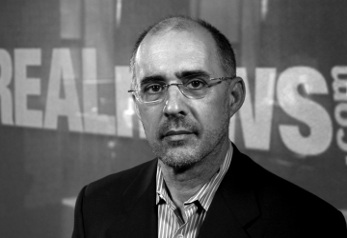Terrorists must have publicity in some form if they are to gain attention, inspire fear and respect, and secure favorable understanding of their cause, if not their acts. Governments need public understanding, cooperation, restraint, and loyalty in their efforts to limit terrorist harm to society and in efforts to punish or apprehend those responsible for terrorist acts. from the other side, journalists and the media in general pursue the freedom to cover events and issues without restraint, especially governmental restraint. Still, three new trends appear to be emerging which impact on the relationship between the media, the terrorist, and government. These include: anonymous terrorism; more violent terrorist incidents; and terrorist attacks on media personnel and institutions. A number of options, none without costs and risks, exist for enhancing the effectiveness of government media-oriented responses to terrorism and for preventing the media from furthering terrorist goals as a byproduct of vigorous and free reporting – such as financing joint media/government training exercises; establishing a government terrorism information response center; promoting use of media pools; promoting voluntary press coverage guidelines; and monitoring terrorism against the media. The media and the government have common interests in seeing that the media are not manipulated into promoting the cause of terrorism or its methods. But policymakers do not want to see terrorism, or anti-terrorism, eroding freedom of the press – one of the pillars of democratic societies. This appears to be a dilemma that cannot be completely reconciled – one with which societies will continually have to struggle. Should media report acts of terrorism?
Related Articles
a federation of constructors
The best Web 2.0 Classrooms Tools (1)
part 1: eJucomm
the innovation of a 19-year-old Canadian
Ambition: independent and uncompromising
discover the Real News Network
dés les stade d'une idée innovante
What should the ideal technology company look like?
the adventure of Benetech
how the software of Fernando Botelho improves thousands of lives
Unlocking the natural power of Lignin
Austria: How biomass can replace the most harmful chemicals
The solution is in your pocket
explore the work of frontline SMS
Have you heard about the massive urban shift?
the messages of Sidewalk Labs
![]()
STAY IN TOUCH
SUBSCRIBE TO OUR NEWSLETTER
AND RECEIVE OUR LATEST STORIES










